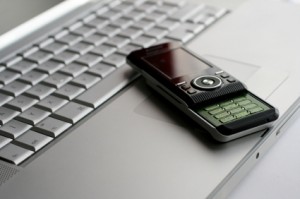With its usual punchy headline, the New York Post announced “Subway Thief Smokes Bacon“. Apparently a thief in the Seventh Avenue subway station stole a Blackberry from actor Kevin Bacon. Bacon tried to chase down the thief in an apparent effort to protect the privacy of those celebrities whose contact information he had stored on the device. In an earlier blog about this issue, I wrote that small business owners cannot be as careless as Hollywood celebrities. Blackberry has a remote data wipe feature – make use of it! Once your Blackberry is lost or stolen, your systems administrator (or you, if you perform that function) can effectively “nuke” the device by remote control – wiping out all sensitive data and completely disabling it. Of course, once that action is taken, it cannot be undone if the Blackberry is subsequently recovered. So I would like to add a few additional tips to my original recommendation.
Although Kevin Bacon immediately began to chase the thief, this will not always be the case. There will always be incidents in which some time elapses between when the device is lost or stolen and when its absence is noted and reported. This leaves you vulnerable for data breaches before you put into effect the remote data wipe. So do not store sensitive banking or credit card information or other passwords on your Blackberry. And encrypt or password-protect your contact database and e-mail messages. A skilled hacker can probably break through this protection, but it is the first line of defense to slow him down before you direct the remote data wipe.


